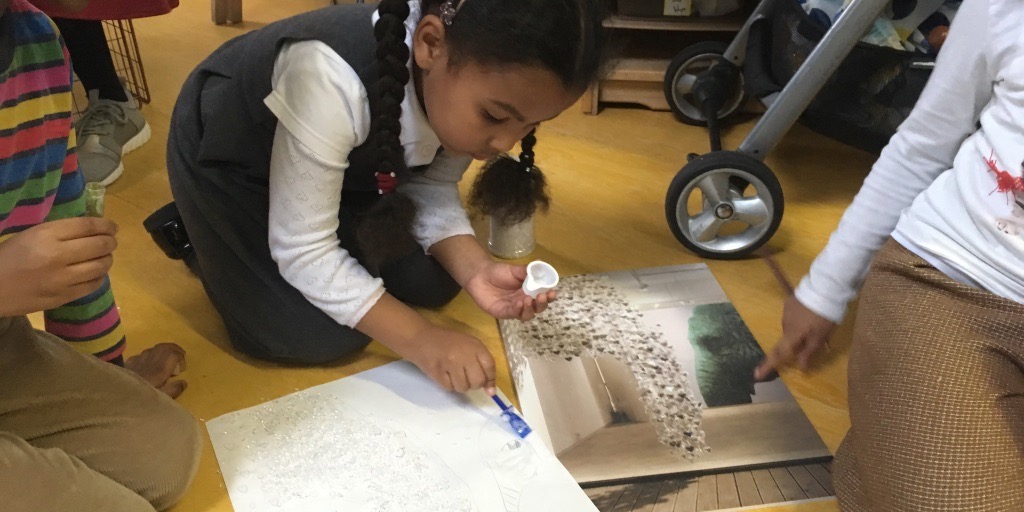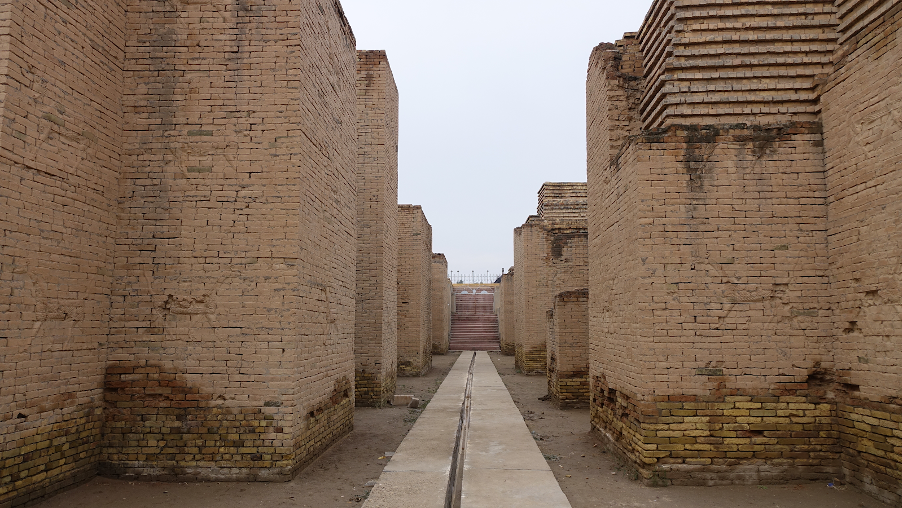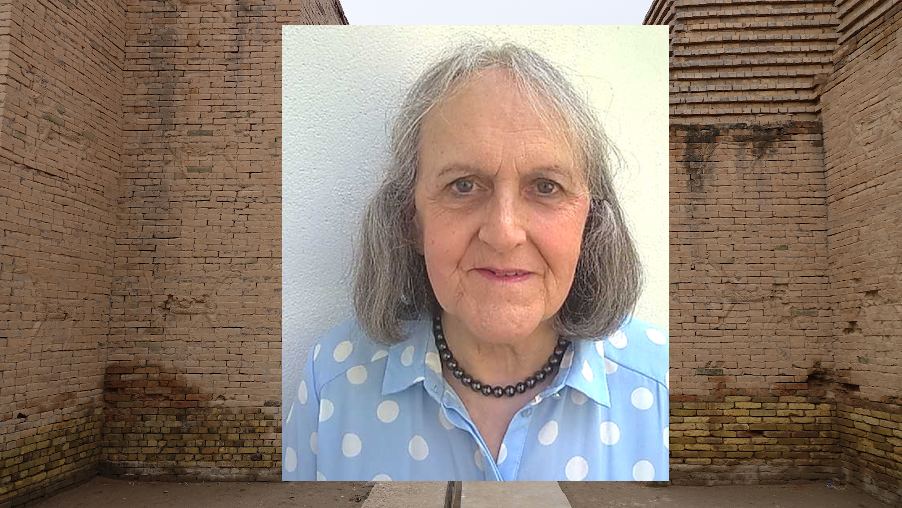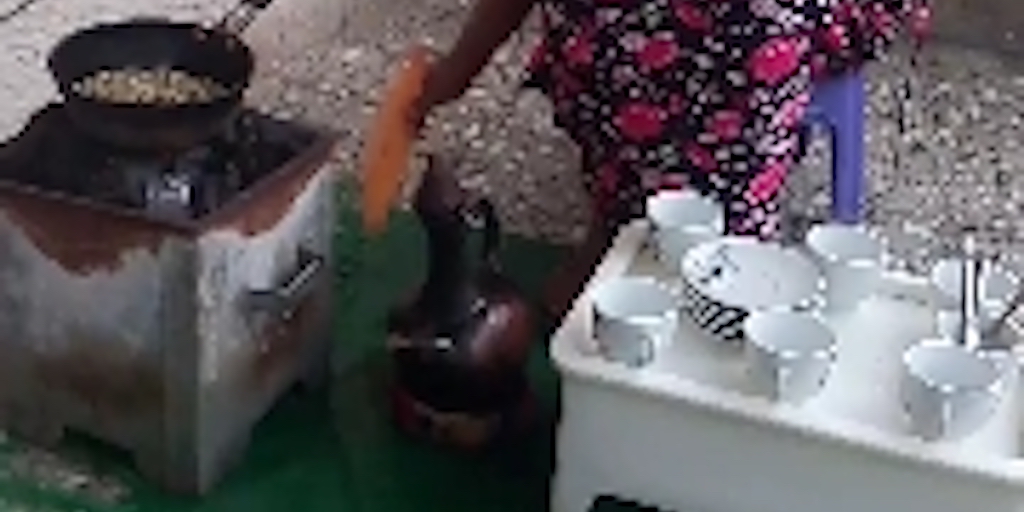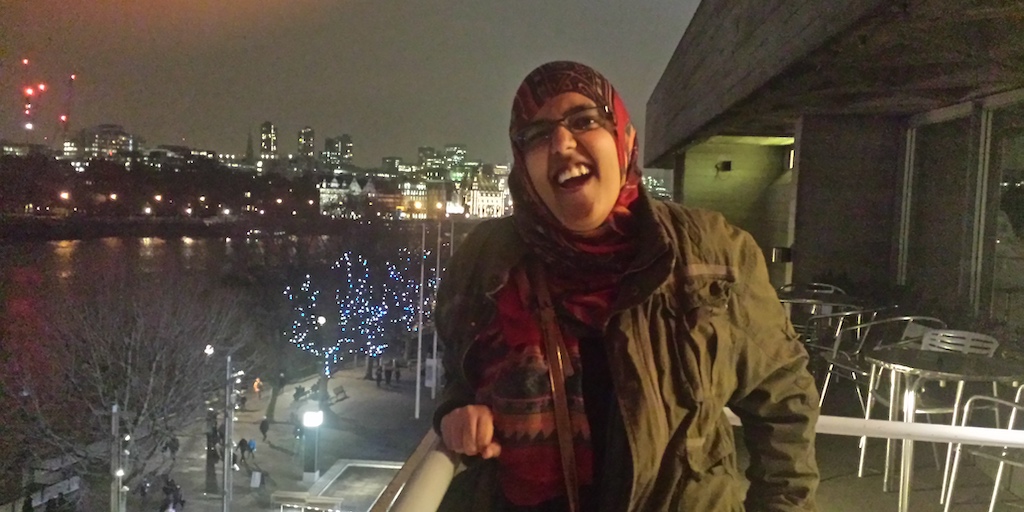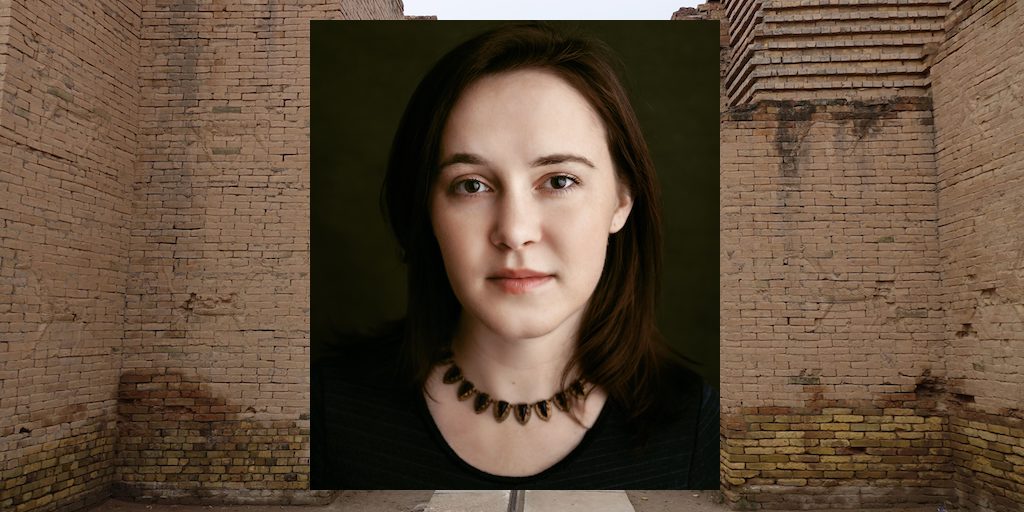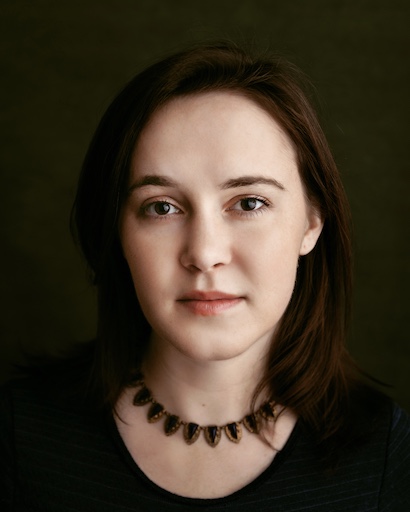Babylon: Beyond Borders
Bush Theatre, Shepherd’s Bush, 2019
Header image: Detail showing Marduk (god), the most important god in ancient Babylon. Babylon 2017, by Mouayad Sary.
On being American in Babylon
By Aubrey Seader
I encountered the Bush Theatre during my first week in London. My mother and father were walking with me, as I oriented myself in my new neighbourhood (Shepherd’s Bush and Kensington). The red brick building with the big green sign felt familiar and homey to me, not unlike one of the theatres in my hometown, the Bloomington Playwrights Project, my first artistic home.
For my first few months in London, I checked the Bush Theatre website regularly, looking for opportunities to join the team. I wrote the general email address asking for volunteer opportunities. I’m the kind of person who orients herself in her community by pitching in. It’s what my parents taught me to do. My opportunity wouldn’t come until after the Christmas holidays.
I was honestly surprised when I was accepted to the Babylon: Beyond Borders ensemble. The Bush caters to an incredibly diverse audience, and focuses on telling the stories of people whose tales are still (even in a theatre culture growing more accepting of diversity) rarely represented. As a white, American female of average build and middle-class origins, I’ve never had a problem finding characters on stage and screen that I could connect to. Being a part of a cast that was truly international, being perhaps the only person who didn’t speak a foreign language or have multi-national, intersecting identities, I was curious as to what my role in the show would be.
Throughout the process of creating and performing Babylon, I realized that for those of us widely represented by world media and culture, it’s only when you are taken out of your familiar surroundings, your native culture, that you realize what your culture and identity really are. For me, it took moving across the Atlantic to England, immersing myself in a culture whose only similarity to mine, really, is that we speak English, to realize what it means to be American.
What it means to be American in the world today is fraught with either defensiveness or shame, depending on who you are and what you make of our current political situation. Since the end of the second World War, being American means that you are a representative of perhaps the most powerful nation in the world (I say perhaps because China is close on our heels). It also means that most people you meet are up to date on all the ways your country has been fucking up of late.
Being American means that you have a slightly different view of the world, and your place in it, than everyone else does. My culture taught me to see the world as one of infinite possibilities, and to claim what I wanted for myself. My culture, as much as it encourages us to be patriotic, is so focused on the individual, that I began to see how this viewpoint has shaped my life in a way that does not make sense to my European and Asian counterparts.
Working on Babylon, I was given lots of time to reflect on home, and what home means to me. This was emotionally difficult, as I was going through a period of aching for my home, my family and my childhood friends (who are still my closest friends today). Home to me means gorgeous, thick deciduous forests, rolling creeks and streams, the loud songs of the cicadas, hot and humid summer air (you could cut with a knife), and sunsets bursting with color. Home is loud, and filled with silly dances, long days working outside in the garden or on the house. Home is days in technical rehearsal in a beautiful theatre, and evenings serving guests at a local family café. All of this pained me to reflect on as I drug my feet through the cold, wet, gray and unforgiving British January. Now, however, I’m glad I did so.
I hesitate to say that I now know what it’s like to be an immigrant. Right now, in my country, to be an immigrant is to face the cruelty of the American justice system, and to be faced constantly with rejection by members of your community. It’s being told to “go home,” or “speak English.” It’s fearing for your life, and your family’s lives. With this in mind, I cannot say I know what it’s like to be an immigrant. I blend in very well to white British society, and my Midwestern American accent is met with pleasant smiles and humor.
However, I can say I know a bit more about what the inner life of an immigrant is like. The joy and sparkly disbelief at your luck – you live in another country! You are on a grand adventure! It’s amazing. The loneliness, and alienation that comes on days when that aching longing for home is present. The satisfaction of the days and moments when you do feel at home, and the pride that seeps through your chest and warms your belly when you realize you have done something scary, you have been brave and come out the other side. All of these things I know, and I cycle through them month after month (with more of the pleasant feelings coming more often as I learn to love this new home more and more).
It’s no surprise that it was a piece of theatre that allowed me to understand my experience as an immigrant to the UK. Theatre has been helping me get to know my own emotions since I was a little girl, and I continue to be thankful for it. Babylon: Beyond Borders was especially helpful to me, and special to me, because so many women were going through this process with me, allowing me to see past my own experience of being a stranger in a strange land, to see the tapestry of stories we are all weaving as we go about our lives – one foot in our homelands, and one foot in our new frontiers.
Navigation
'Instead of plain English we spoke coloured': Duffy, London, Babylon
Introduction by Katie Webb
A celebration of London, home, Babylon
Katie Webb
Home from the Elderly Woman
Lieve Carchon
Coffee in Ethiopia
Titlail Negussie Mekuria
Touch/Feel of home
Mediah Ahmed
On being American in Babylon
Aubrey Seader
More on Duffy, London, Babylon
